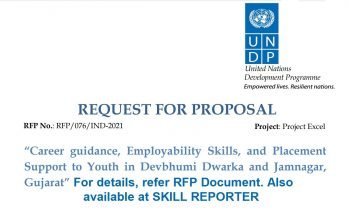Riyadh – The United Nations Development Programme (UNDP) and the King Salman Humanitarian Aid and Relief Center (KSrelief) have renewed their partnership with the announcement of a Joint Implementation Programme (JIP) agreement that will provide support to vulnerable people in areas affected by conflict, crises and natural disasters across the Arab region and beyond. The assistance will support early recovery and a fast transition to a course of development that helps them preserve their dignity and sense of agency, including immediate measures to protect their livelihoods.
The agreement was announced by the Supervisor General of KS Relief, Dr. Abdullah A. Al Rabeeah and UNDP Administrator, Achim Steiner in their meeting.
“As the tragic earthquakes that hit Türkiye and Syria show, crises do not respect borders nor boundaries, devastating lives, and upending livelihoods in the blink of an eye,” said Steiner. “New partnerships are vital to not only respond to this era of poly-crisis but to get ahead of the crisis curve by pro-actively investing in resilient development across the Arab region and beyond – a defining feature of KSrelief and UNDP’s cooperation.”
In the initial phase, the JIP agreement will support projects in Jordan, Lebanon, Somalia, Sudan, and Yemen, alongside local cooperation on training and capacity-strengthening activities. Subsequently, phases of the collaboration will expand support activities to include countries across Africa and Asia.
Under the new JIP framework, UNDP and KSrelief today signed an agreement to support communities in Yemen affected by the ongoing conflict.
The project extends vocational and business skills training for young Yemeni women and men, expanding coverage to 22 districts in nine governorates over a second phase of implementation that will be completed from March 2023 to February 2024, with a total value of USD 4 million. The first phase of the project, implemented in 2021-2022 in six districts in the governorates of Hadramout and Lahj, helped over 5,000 people to improve their income and secure self-reliance.



